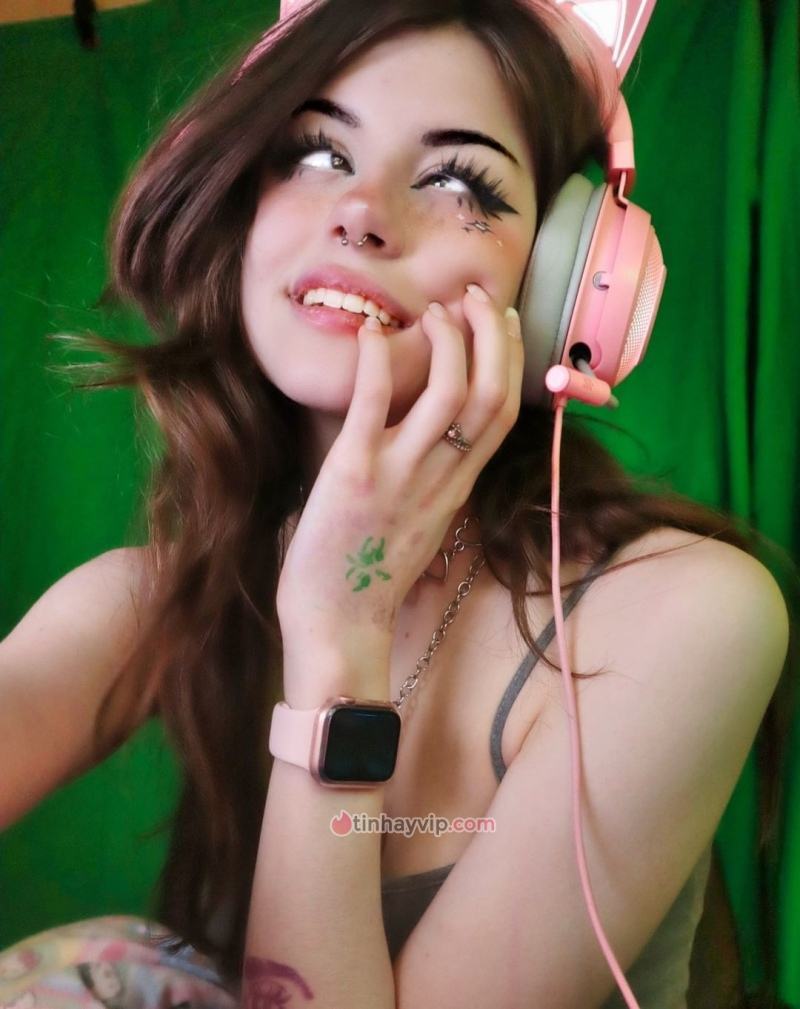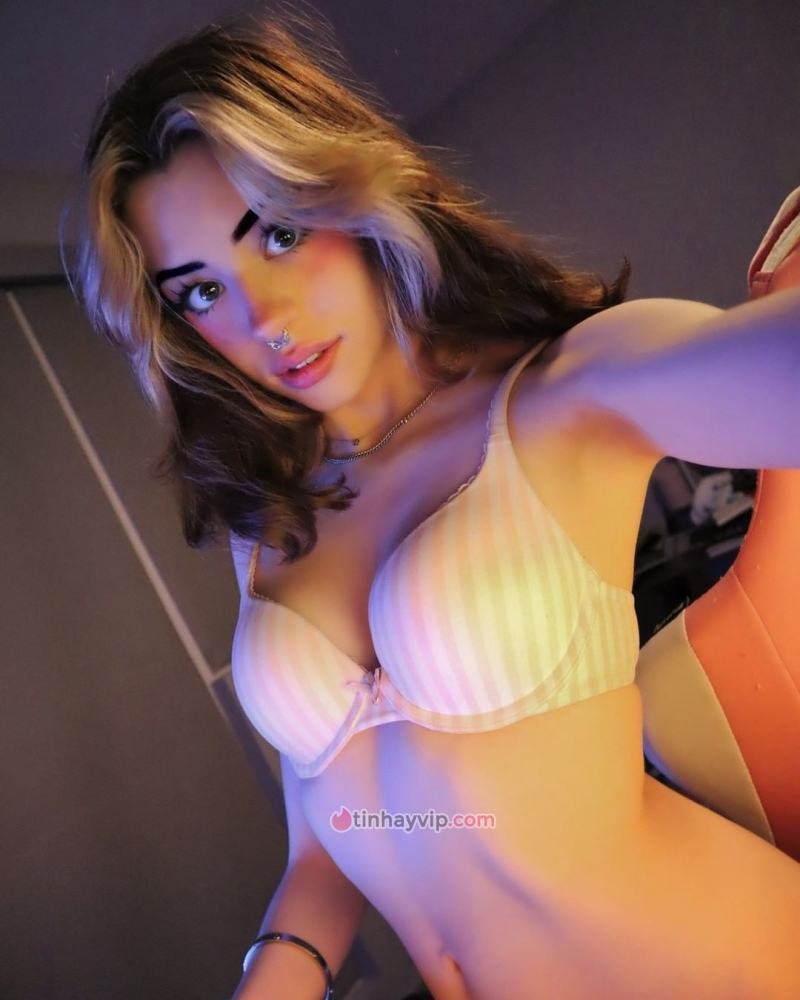Hannah Owo Viral Video & Leak Scandal: What's Happening?
Is the digital age a double-edged sword for its most visible inhabitants? The rise of social media has propelled individuals to unprecedented levels of fame and fortune, but it has also exposed them to a relentless scrutiny and the potential for career-altering scandals, as illustrated by the experiences of Hannah Owo.
The internet, a vast and often unforgiving space, has become the arena where personal lives and professional personas collide, sometimes with devastating consequences. Hannah Owo, a prominent figure in the online world, has found herself navigating this complex landscape, facing both the triumphs and tribulations that come with widespread visibility. The recent leak of a video and photos, allegedly originating from her OnlyFans account, serves as the latest chapter in a story marked by rapid ascent and ongoing controversies. This event, occurring on February 18, 2024, underscores the inherent vulnerability of online creators and the risks associated with digital content distribution. The incident has triggered a wave of reactions, ranging from condemnation of the individuals responsible for the leak to discussions about online privacy and the protection of personal content. The impact of this incident, as with previous controversies, highlights the constant need for individuals to navigate the nuances of online presence and safeguard their digital footprint.
| Category | Details |
|---|---|
| Full Name | Hannah Kabel (Known as Hannah Owo / Hannah UwU / Notaestheticallyhannah) |
| Date of Birth | November 21st, 2002 |
| Age (as of October 26, 2024) | 21 years old |
| Nationality | American (based on current residence) |
| Known For | Social Media Influencer, Content Creator, Adult Entertainment (primarily on OnlyFans) |
| Platform Presence | TikTok (itshannahowo), Instagram (@notaeshannah, @hannahlouu), OnlyFans (under various names, often "hannahowo") |
| Online Career Start | 2018 (at age 16) |
| Controversies | 2021: Resurfaced tweets with racial slurs; 2024: Leak of video and photos from OnlyFans |
| Current Residence | United States |
| Verified Reference | TikTok Profile |
The viral video "Sorry i don't talk in an uwu voice" remains a notable element of Hannah Owos online persona. The video showcases her saying "Sorry i don't talk in an uwu voice," immediately followed by speaking in a childish, exaggerated "uwu" voice. This seemingly simple act, indicative of the performative nature of online content, resonated with a wide audience and exemplified her ability to cultivate a dedicated following through authenticity and humor. It's this type of interaction, though seemingly innocuous, that fuels the dynamic between creators and their audiences, as is the foundation for the economic models of platforms like Alua, which aim to connect creators with fans.
The world of content creation, however, is not without its challenges. The pressure to continuously produce engaging material, maintain a consistent online presence, and monetize that presence creates a demanding environment. Platforms like OnlyFans offer a direct avenue for creators to sell content and interact with their fans, but the very nature of these platforms can also expose creators to risks, as evidenced by the 2024 leak. The incident serves as a stark reminder of the vulnerability of personal information and the importance of securing one's digital footprint.
The incident, which transpired on February 18, 2024, is just the latest instance of Hannah Owo being at the center of public discussion. The content, which reportedly originated from her OnlyFans account, was allegedly obtained without authorization by hackers or subscribers who had violated the platforms terms of service. This breach of privacy has led to further scrutiny of her online activities and has reopened conversations about the ethics of content distribution, the responsibility of platforms to protect their users, and the potential ramifications for creators whose personal lives are made public.
Beyond the recent events, Hannah Owo's journey has been marked by earlier challenges. In May 2021, she faced significant backlash when older tweets containing racial slurs resurfaced. This incident, which threatened to derail her burgeoning career, served as a harsh lesson in the permanence of online records and the potential consequences of past actions. The resurfacing of these tweets underscores the importance of careful self-presentation and ethical conduct in the digital world. This is particularly crucial given the speed at which information can spread and the potential for past mistakes to resurface and impact present opportunities. The context of this earlier controversy highlights the difficulties of managing a public persona and the need for individuals to constantly be aware of how their actions might be interpreted.
The platform of TikTok, where she is known as @itshannahowo, has played a key role in her online visibility, with her profile accumulating an impressive 82.8 million likes. It should be noted that after the scandal, her main TikTok account was blocked, forcing her to create a new account, @hannahowo6669. She started professionally posting content on the internet in 2018, at the age of 16, developing her online presence and gathering a following, demonstrating an early grasp of the opportunities presented by social media. This early start reflects the evolving landscape of the internet, where young people are able to establish themselves as key influencers. Further adding to her appeal is a willingness to share intimate details, such as her age (22) and her identity as a wlw (woman-loving-woman), which suggests that she is confident with her identity and open to sharing it with her fans. The integration of her personality, preferences, and experiences into her content is, therefore, an important component of her appeal.
The incident concerning the leaked content, as well as the controversies that preceded it, have had a tangible impact on her online presence. Reports indicate that she may have faced repercussions from various platforms. While the specifics of those actions vary, they serve as a signal of the evolving terms and conditions governing online conduct, content moderation, and the protection of user rights. These measures underscore the industry's need to react to misconduct and the challenges involved in ensuring a safe environment for both creators and users.
In the midst of these events, business activities continue to take place. Advertisements urging creators to "Interact with your fans today and start selling content" are common, highlighting the various options available to monetize online content. Platforms such as Alua are promoting themselves as alternatives to OnlyFans, creating a landscape where creators can connect with their fans in new ways and create relationships that transcend the exchange of content. The prevalence of these adverts reflects the growing emphasis on creator-fan engagement, as well as the continuing need for new monetization strategies.
In addition to the more established avenues, there's the emergence of the NFT (Non-Fungible Token) marketplace, like Opensea. This offers creators another way to connect with their audience and sell their content in the form of digital assets. This diversification of options available reflects the fast-paced evolution of online business models and the willingness of creators and entrepreneurs to adjust to changing market dynamics.
The name "Hannah UwU" and "Hannah Owo" are frequently associated with images and compilations, indicating a popular engagement from fans. Search results for "[leaked photos]" continue to circulate, underscoring the continuous interest in her online presence, despite recent challenges. This kind of attention, even when negative, illustrates the effect of online content and the challenges of handling public scrutiny.
In conclusion, the experiences of Hannah Owo offer a complex view into the realities of digital life. She has achieved remarkable fame and success in the dynamic world of content creation, as is proven by her TikTok profile with its millions of followers and likes. Nonetheless, she has also experienced difficulties and setbacks, including prior controversies and the recent leak, highlighting the difficulties that can arise when personal and professional lives converge online. The issues she has faced underscore the complex interplay between online influence, privacy, and ethical behaviour in the modern era, and will no doubt be a point of discussion in future explorations of the ever-changing online landscape.



